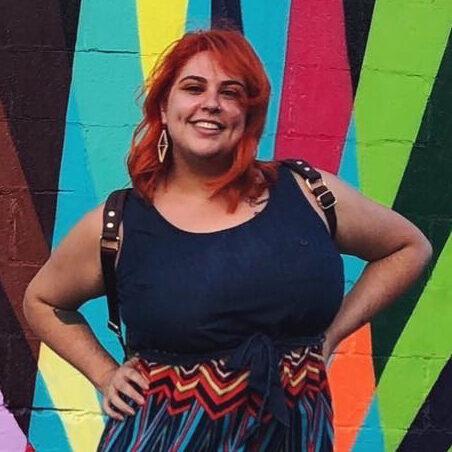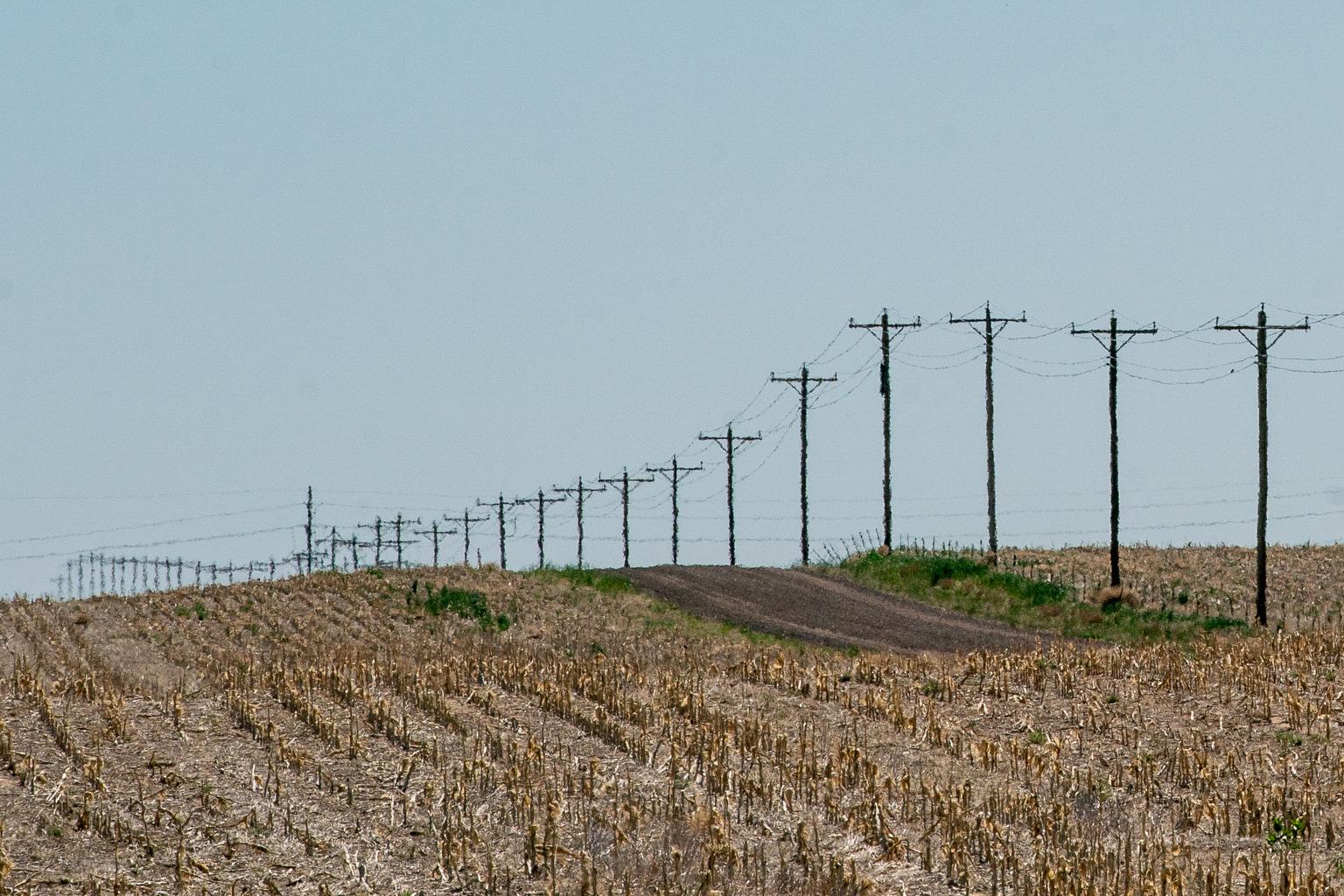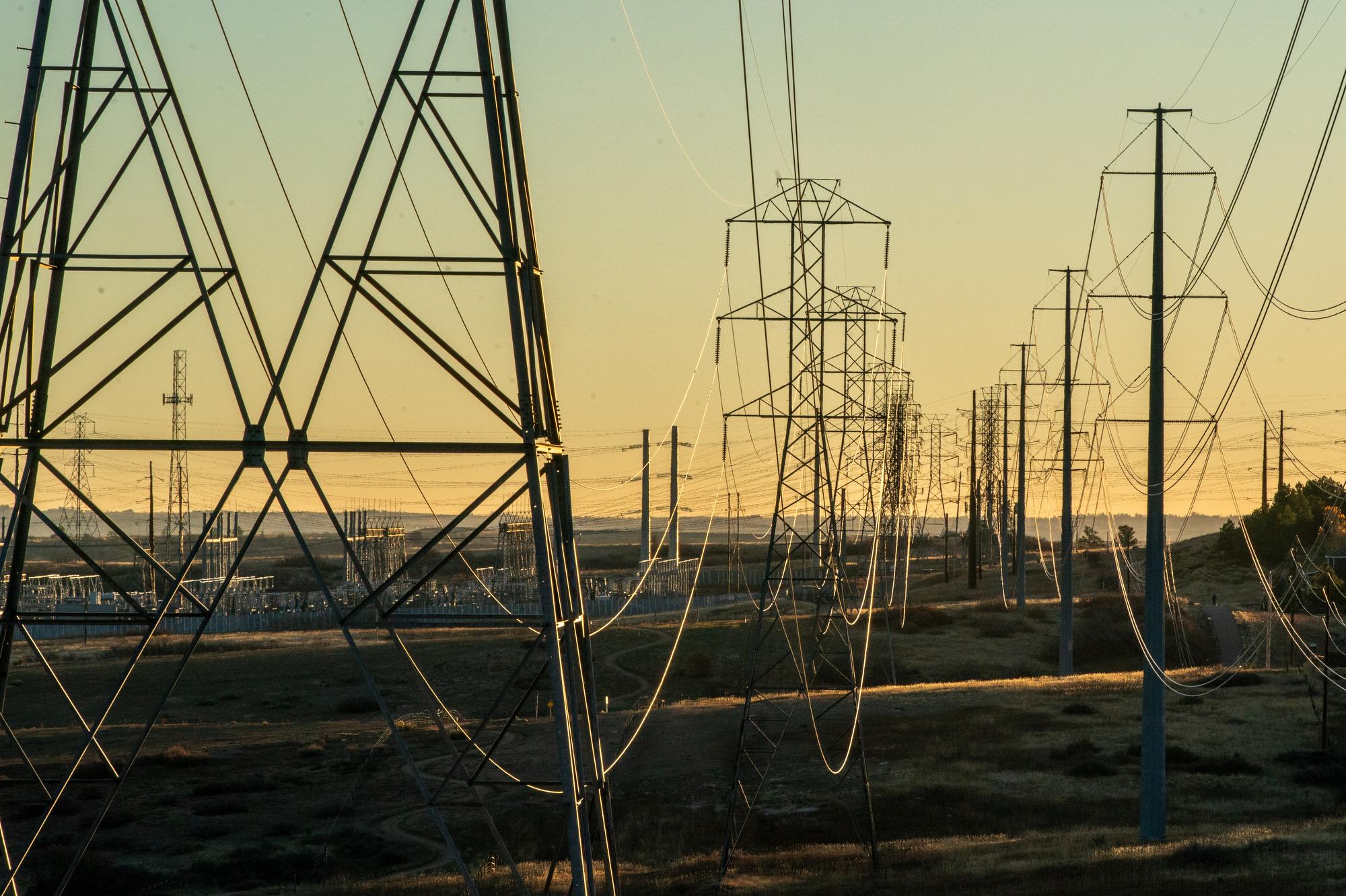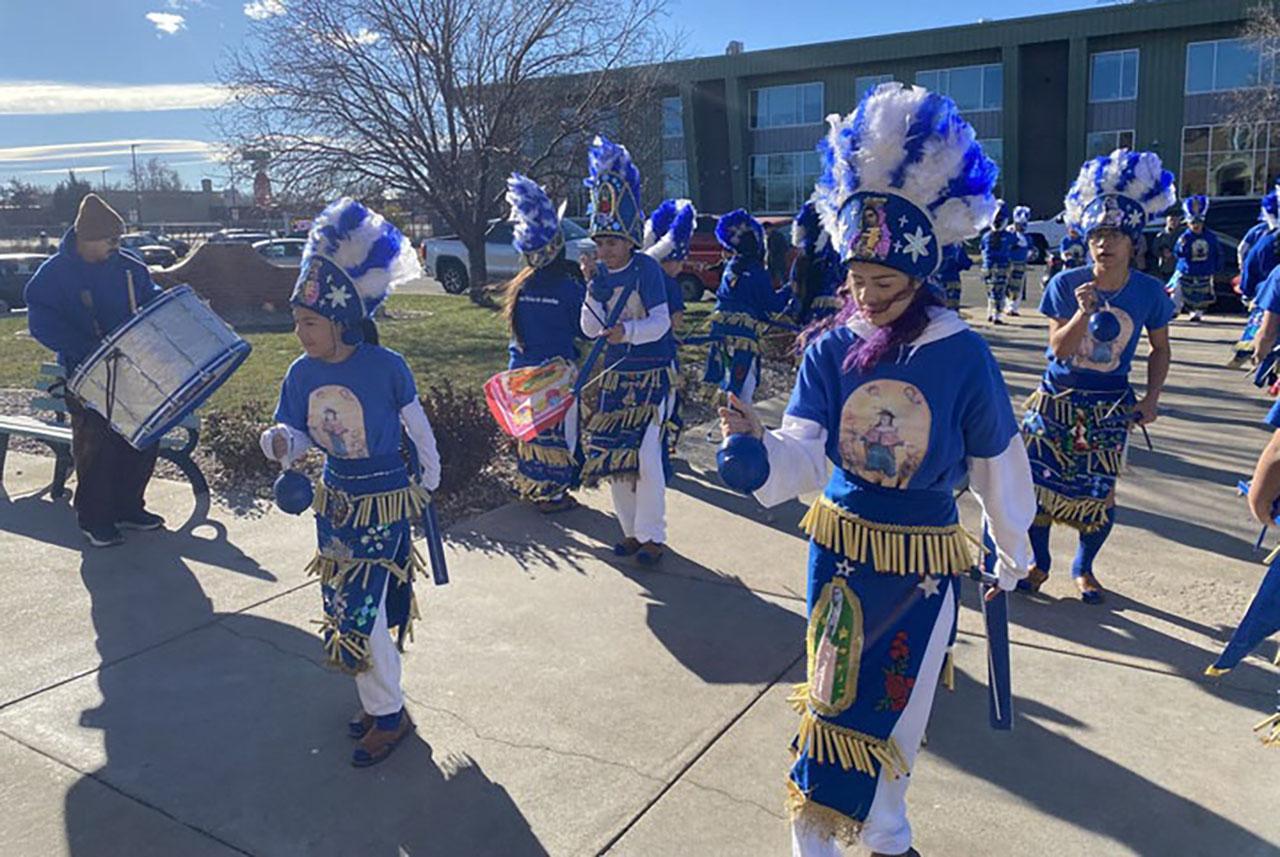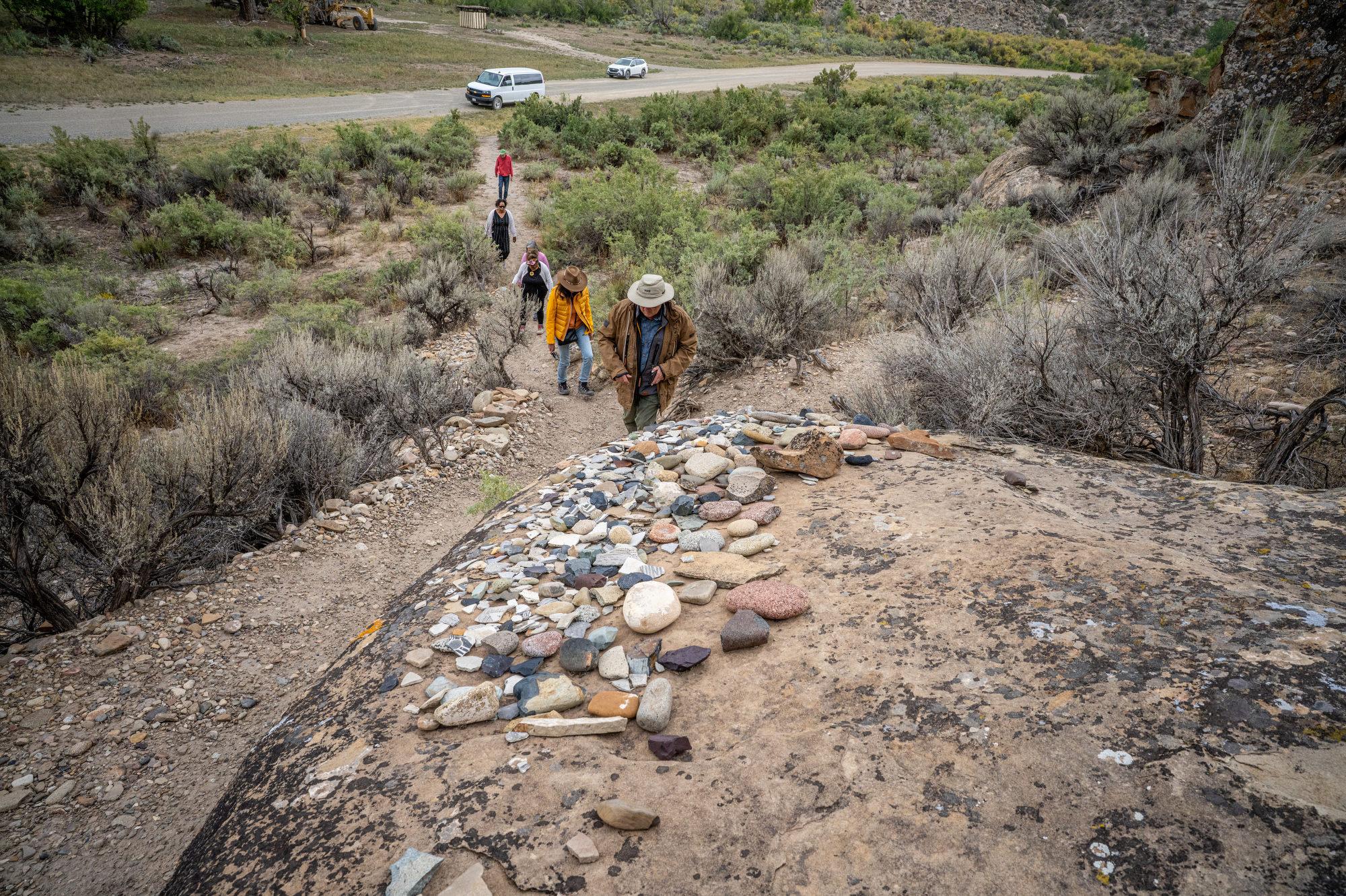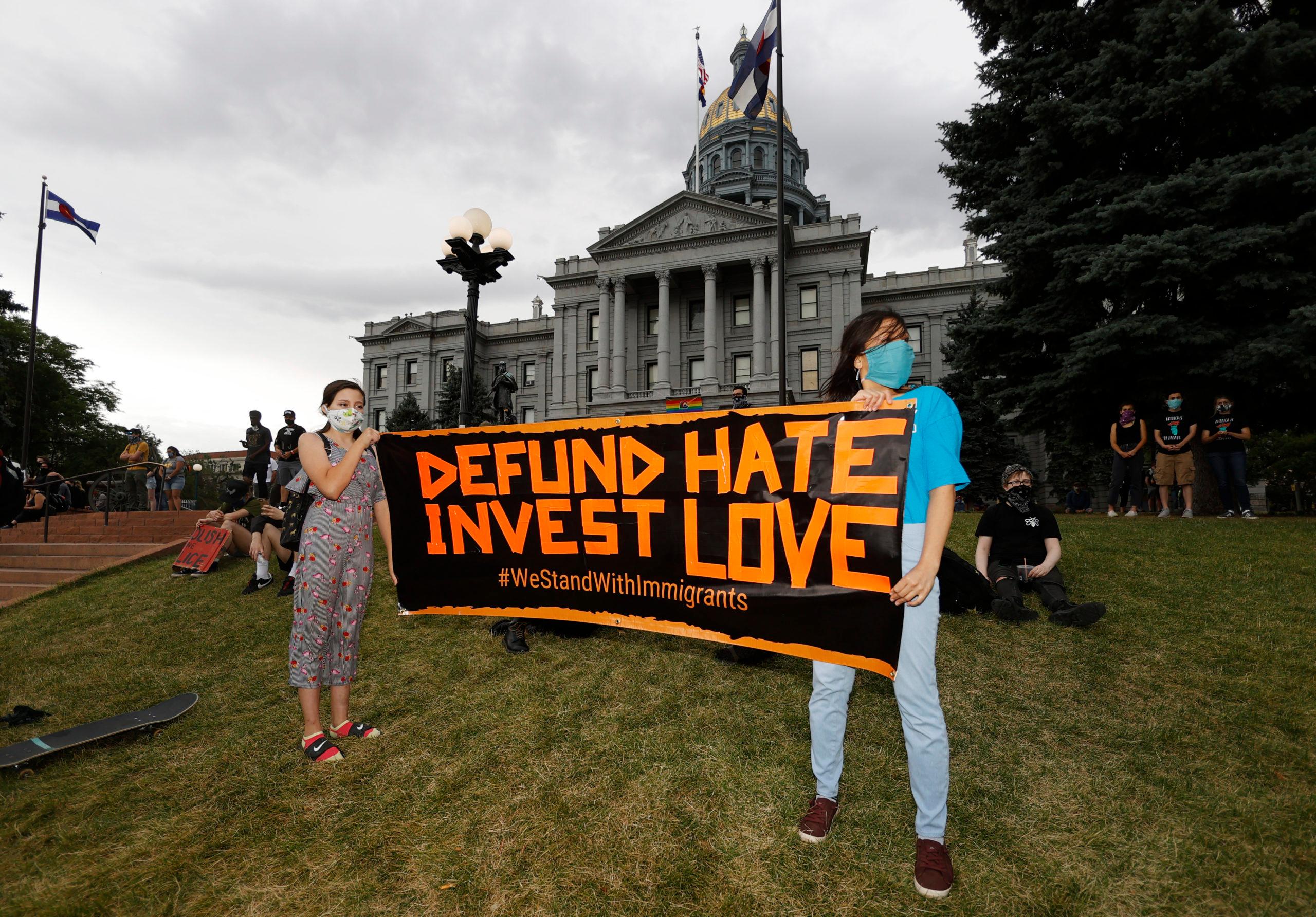
When CPR News first spoke to Colorado 2020 voters about immigration back in February, the state was in a different place. Now things have changed, partly because of the coronavirus pandemic and partly because of the swell of protests in state and nationally calling for racial justice.
While immigration is still a strong priority — the Trump administration recently extended a ban on green cards issued outside the United States and added many temporary work visas to the freeze — the issue now has to share attention span with a sputtering economy, Democratic voter concerns about the 2020 presidential election and the new zeitgeist around racism.
There was also a big Supreme Court decision that has, for now, defended the Deferred Action for Childhood Arrivals program.
Even though it was already personally important to him, the pandemic has made immigration an even bigger issue for Ricardo Rocha, a formerly undocumented immigrant. He now is an entrepreneur with his own food delivery company, Bondadosa.
“We are an incredible part of frontline workers,” Rocha said of himself and others like him in the county. “Whether you are a person cleaning an office or a person cooking a meal, or a person cleaning the floor at a hospital, serving those same patients. I think there’s an undocumented immigrant everywhere.”
- Some Colorado Voters Now See Racial Justice And Climate Justice As Intertwined Issues
- Pandemic And Protests Are Just Another Piece Of The Health Care Debate For Colorado Voters
- Here’s What’s On The Minds Of Voters In The Hickenlooper-Romanoff Primary
- ‘We’re Exhausted. We’re Fearful. We’re Angry.’ We’re Only Through Half A Year’s Worth Of Racism So Far
- Tell CPR How We Should Cover The 2020 Election
The pandemic has caused record-high unemployment, thus leading to more food insecurity. Rocha’s company has been swamped as a result. He said his company joined with other local groups to form the Denver Metro Emergency Food Network. Bondadosa delivers the food these groups put together.
“In the last three months, we’ve delivered nearly 250,000 meals to those in need,” Rocha said.
Before the pandemic, he had a dozen employees. The company has since received some community grants and now he has more than 70 workers.
Rocha was born in Guanajuato, Mexico, and brought to the United States illegally when he was a child. He attained citizenship shortly after President Donald Trump was elected and he cast his first-ever ballot in the March presidential primaries — for Vermont Sen. Bernie Sanders.
“Yeah, I voted for [Sanders], and at the end of the day I will vote blue, always,” he said. “I will support Biden for president.”
And when it comes to Colorado’s June 30 Senate primary race, Rocha said he intends to vote for Andrew Romanoff, who faces former Gov. John Hickenlooper for the party’s nomination to take on incumbent Republican Sen. Cory Gardner.
In Mancos, a small artsy town in southwest Colorado, Margaret Kirk has already cast her ballot in favor of Romanoff, chiefly because she likes his stance on environmental issues and his support of the Green New Deal.
Kirk wants to see change and the defeat of Gardner could help flip the Senate to Democratic control. As for the presidential race, Kirk said Joe Biden wasn’t her first choice during the primary, but he is now.
Immigration was and still is the issue she cares about the most. In fact, she’s more energized now because of the Black Lives Matter movement.
“We won’t give up. Justice is on its way,” Kirk said. “That’s in the forefront of my mind. I’m hoping that justice — not only in the immigration issue but in the other issues that are so much in the forefront right now — I hope that justice will be done.”
Immigration is still at the forefront of Jordan Ochoa’s mind, too. In February he said that, and health care was incredibly important to him. And if anything, they’re more pressing now.
“Latinos have gone through different waves of racism through the years,” Ochoa said. “Black people have gone through different waves of racism. Seems like every other decade, one of them or both of them are being affected on another negative level.”
Like Rocha, he was a big Sanders supporter and still is. But he said he’ll vote blue, no matter who. Because he’s acutely aware of the social inequities around him, he said he can’t sit out this election.
“It’s very frustrating, but we can’t stop,” he said. “We can’t stop moving forward.”
Jackie Chazan-Anderson’s attitude is similar. She’s a strong Sanders supporter and even campaigned for him. But now that he’s out of the race, she said she’ll cast her vote for Biden.
“We can’t afford to throw tantrums,” Chazan-Anderson said. “And we can’t afford to sit out this election. It is imperative that we change the direction of the government.”
Immigration had been her top concern, and it’s still a big deal for her, but her attention has shifted recently.
For her, the pandemic has revealed glaring issues within the country’s health care system and the Black Lives Matter movement’s calls for racial equality have put a spotlight on social justice. She felt overwhelmed because these national protests are happening while the country battles the novel coronavirus.
And yet, she also believes that it’s not all bad.
“I feel hopeful, believe it or not,” she said. “With the Black Lives Matter protests, I feel like we have just started our second revolution. And this time, it’s going to make fundamental changes in our government.”
What's on your mind as the June 30 primary election approaches? Check out this survey and tell us how we should be covering the 2020 election.
